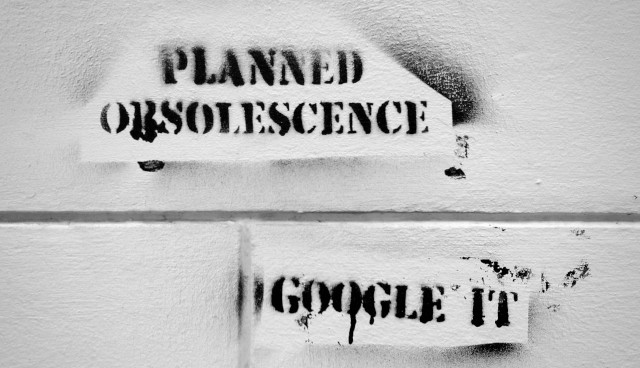
Photo by Mika Baumeister on Unsplash
- The Many Ways Planned Obsolescence Is Sabotaging How We Preserve Internet History
But one issue keeps cropping up that I think is going to become even more prevalent in the years to come: Non-functional batteries.
Battery technology and the circuitry that connects to it varies wildly, and it creates issues that prevent gadgets from living their best lives, in a huge part due to the slow decay of lithium-ion batteries.
A prominent example of this, of course, are AirPods, highly attractive and functional tools that will slowly become less useful over time as their batteries go through hundreds of cycles and start to lose steam. But at the same time, AirPods are just an example of what is destined to happen to basically every set of Bluetooth headphones over time: The lithium-ion batteries driving them will slowly decay and turn a once-useful product into an object that must be continually replaced because a single part, the battery, cannot be replaced.
- India’s Restaurants Rebel Against Food Delivery Apps
The frustration goes beyond India. As food ordering and delivery increasingly move online, restaurateurs and delivery workers around the world are questioning the small share of the pie they get from powerful gatekeepers like Zomato in India, Grubhub and DoorDash in the United States, and Deliveroo in Europe.
The apps have made it easier for people to order takeout meals, and restaurants have gotten exposure to a larger audience of diners. But the platforms also charge hefty commissions on each order and can squeeze the profit margins of culinary establishments. In the United States, some restaurants have closed, unable to keep up with the cost of working with the delivery apps.
The revolt in India underscores how tense the relationship between restaurants and the dining apps has become. On Thursday, restaurateurs spent all day meeting with top executives of Zomato and Swiggy, but failed to settle their differences.
https://www.nytimes.com/2019/08/29/technology/india-restaurants-logout-delivery-zomato.html
- How to vastly improve your problem-solving workshops
Key Concept: Move from ideas to experimentation quickly - Out-of-Office Replies: Can a Strongly Worded One Set You Free?
Some people threaten to delete all emails upon return. Many deflect with a joke, but taking creative liberties with an OOO only works if you’re high enough on the food chain in certain industries. “Stating you’ll respond ‘if you feel inspired’ will likely be poorly received at a law firm or by your boss if you’re entry-level,” said Ms. Licht. “It comes down to anticipating who’s receiving the message.”
Others think that working a not-so-humble brag about, say, your “tightly scheduled tour of vineyards in Burgundy” into your OOO might convince people to leave you alone, or at least want to. For some recipients, however, “that’s just too much information,” said Ann Shoket, author of “The Big Life,” a self-help resource for professionals.
If you can’t totally excise yourself from the grind, or can’t push your work off to a colleague, Ms. Johnson recommends selecting a window of availability each day to maintain some semblance of control over a vacation. Because let’s be real, we can never truly sign off(line) anymore.

